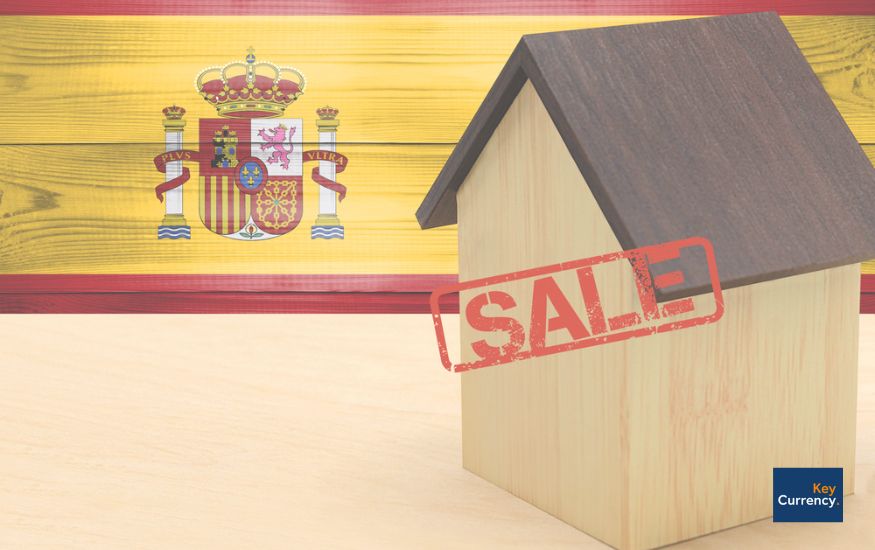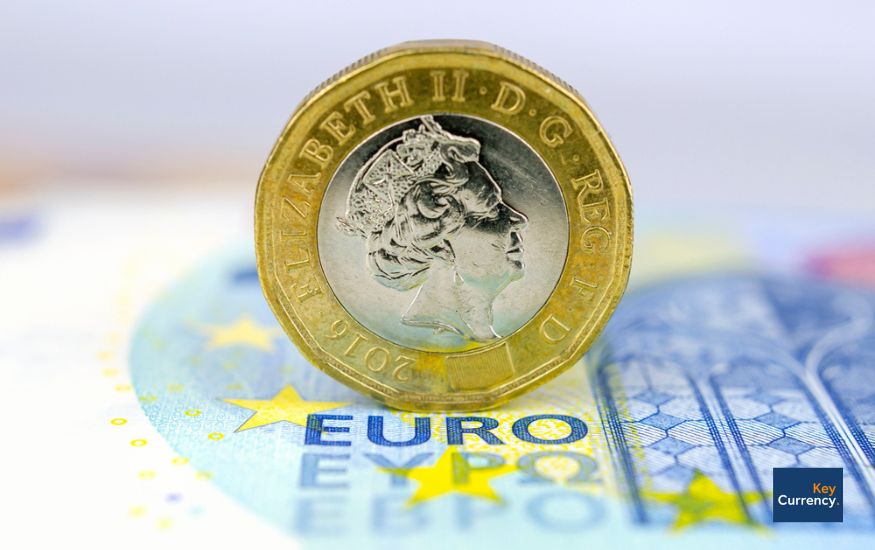 Author, Mike Smith
Author, Mike Smith
Last Updated on August 11th, 2024
Buying a property in Spain, whether it is a holiday hideaway, relocating, or a real estate investment, is an exciting prospect.
Being aware of the costs involved before you sign on the dotted line for the place of your dreams will make sure that your Spanish property purchase will be as cost-efficient as it possibly can be!
This article offers valuable insights into the expenses you will come across and how to transfer your funds from the UK to Spain in the most efficient way.
Save Money on Your Spanish Property Purchase
International Transaction Costs with Spanish Property Purchase
Be sure that you are forearmed with knowledge of the various costs associated with buying a property in Spain.
- Property Price
The biggest cost you will have to pay when you have settled on your place in the sun is the property price, which will vary quite significantly according to location within Spain, type of property, and size.
- Property Transfer Tax
When you complete the purchase of your property, you will need to be aware that you will be subject to a Property Transfer Tax, also known as Impuesto Sobre Tansmisiones Patrimoniales.
NB: This only applies if you are buying a pre-owned property.
This can range from 6% to 10% of the property’s value.
It’s a regional tax which, put simply, means that each autonomous region in Spain applies its own rate.
To give you an example, in Andalusia, transfer tax on Spanish property is levied at a flat rate of 7%. In the Comunidad Valenciana, however, it stands at 10%.
This tax calculator gives valuable insight into the tax for each different region in Spain.
- Value Added Tax (VAT) – IVA (new builds only!)
If you have decided to buy a newly built property, instead of the Property Transfer Tax, you will have to pay IVA – which is the Spanish term for VAT.
The rate of IVA is currently set at 10% for residential properties.
- Exchange rates
Finding the most favourable exchange rate when buying property in Spain is vital, as it can make a huge difference to your total purchase cost.
This is where using a money transfer company such as Key Currency can help you make substantial savings.
- Notary and Legal Fees
When you complete your property purchase, you will need to use a local public notary. Their fees typically range from 1% to 2% of the property’s price.
Why do you need a notary?
In Spain, once the sales contract has been signed, the buyer must pay the seller by transferring to their bank account. You can also pay the seller bank a banker’s draft. The role of the notary here is to record and certify the payment in the act of purchase.
- Mortgage Fees
If you need to take out a mortgage to finance your Spanish property purchase, this will of course add to your overall expenses.
These can include mortgage setup fees and interest rates. Be sure to shop around and compare rates from both local and international lenders.
At Key Currency, we have an agreement in place with Sabadell, one of the most recognisable banks in Spain.
As our client, we can connect you with their brokers who will advise you on the very best mortgage for your requirements.
Santander’s Mundo Mortgage offers a competitive fixed or variable-rate loan for non-residents.
That said, the variable rate is higher than that offered to residents and the loan covers a maximum of 70% of the property’s value.
If you’re thinking green and the property you’re buying has an energy-efficiency rating of A or B, BBVA’s mortgage options are certainly worth a look.
They offer a competitive fixed rate for loans up to 80% for up to 30 years.
Considerations When Purchasing a Property in Spain
Legalities
Spanish property law can be a minefield if you are not fully armed with the correct information, especially regarding planning permissions.
If you are taking on a renovation project, it’s crucial to ensure that your property of choice has all the necessary permits, and is free from past debts or illegal additions to the house by previous owners.
This can be a common issue in Spain, which many of my friends and clients have experienced in the past!
We would strongly advise hiring a property lawyer to handle the legal aspects of the transaction to avoid any unpleasant surprises once the purchase is completed!
Market Research
Research the local property market to evaluate property values and trends.
You may well be amazed to discover just how much property prices in Spain and its islands vary from region to region!
For example, the Balearics, especially the island of Ibiza, is a desirable place to live but the property prices there can be more than quadruple the price of mainland Spain!
Negotiation
Choosing a good real estate broker is essential to ensure you pay the right price for your new home in Spain.
A local agent will have a broader knowledge of the market and work with you to negotiate the price and terms with the seller.
Most real estate agencies in Spain will have English-speaking staff members, so if you haven’t had the chance yet to learn the language, this can also be a great advantage as this is quite a challenge for a lot of expats!
Rental Income
Are you buying a property in Spain on a buy-to-let basis? Be aware of the rental laws in Spain, as they can vary from region to region.
It is forbidden to rent your property for less than 31 days unless the property you choose already has a tourist licence, which is unusual in most cases.
Added to this is the fact that touristic licenses have been virtually impossible for an average expat seller to acquire in recent years, it’s an ongoing issue that I have seen both clients and friends struggle with.
NB: the process can be long and expensive to pursue!
It’s also worth considering hiring a local property management company to handle rentals.
They will have well-established connections with local contractors, from plumbers to gardeners, and can speak to them on your behalf to avoid any problems with language barriers.
If you are looking to rent your property out, platforms such as Airbnb can be a valuable resource, as long as you are sure to adhere to the rules.
Airbnb is completely legal in Spain. However, we are aware of each region’s regulations. Furthermore, vacation rentals like Airbnb and Booking.com are classified as ‘tourist households’, in other words, stays that are less or equal to 31 days.
How a Currency Broker Can Help with a Spanish Property Purchase
Using a professional currency broker to transfer your funds to Spain for your property can significantly affect the overall cost of your transaction, for the better!
Exchange rates fluctuate constantly, and banks often charge high fees, making it challenging to get the most value for your money.
Each bank will have flat fees and exchange rates that impact the total cost of your money transfer.
The exchange rate charges from currency brokers and online money transfer services are much cheaper than high-street banks.
Every bank is different but in general, you can expect them to take as much as 3-4% of your total transfer as a fee when you send money to Spain. Banks tend to charge this flat fee and an exchange rate charge which depends on the amount you transfer.
At Key Currency, we have helped hundreds of clients buy their dream homes in Spain. We can often facilitate quicker transfers than banks, ensuring that your funds reach Spain promptly, which is essential in property transactions. With over 2,500 reviews on Trustpilot with a rating of ‘Excellent’, we are a currency transfer specialist you can trust. Key Currency is an FCA-registered Authorised Payment Institution (No. 753989). Our expert team is available for all of our clients and we pride ourselves in offering a personal 1 to 1 service throughout the transfer process. If you’re looking to purchase a property in Spain, then get a free quote on transferring the money to Spain today, and see how we can support you.Why choose Key Currency?
More Guidance & Transfer Tools


